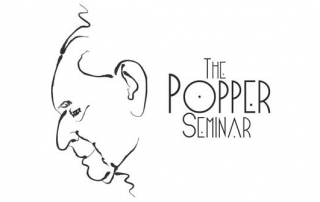Patricia Rich (Bayreuth): “Knowledge in Real-World Contexts: Not Glamorous, but Indispensable”
Patricia Rich (Bayreuth): “Knowledge in Real-World Contexts: Not Glamorous, but Indispensable”
During the past few decades, many epistemologists have argued for and contributed to a paradigm shift which repositions knowledge as the central concept in epistemology and the fundamental explanatory and normative force. For example, knowledge has been argued to provide the normative standard for assertion and action, […]




Connect with us
Facebook
Twitter
Youtube
Flickr